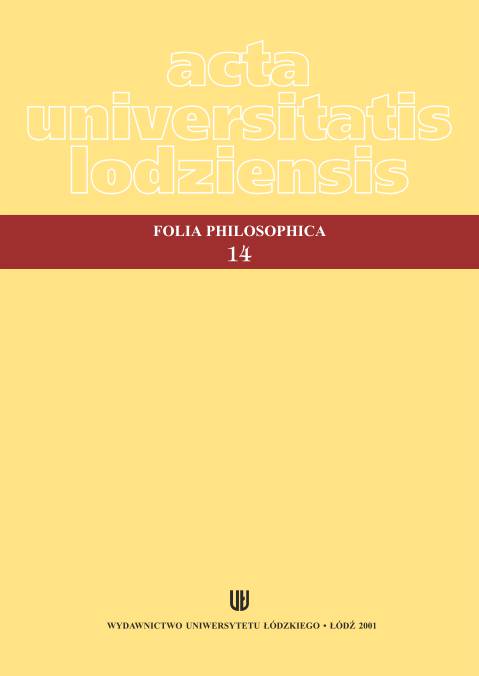Will To Power And Eternal Recurrence Two Faces Of The Aeon. An Essay On Nietzsche
DOI:
https://doi.org/10.18778/0208-6107.14.09Abstract
In the first part of the essay G. Wohlfart examines fragments (mostly unpublished) in which Nietzsche criticises freedom of the will as the 'calamitous invention of the philosophers'. Then, consequently, he describes the will to power as a will without willing, so that he can analyse the 'third transformation of the spirit' in Zarathustra, showing that it comes from Nietzsche's reading of Heraclitus' 52nd Fragment. The child from the third transformation is thus the aeon from Fragment 52, and the aeon is the 'world-child' whose 'playing in the world' bears the name 'will to power'.Downloads
Published
2001-01-01
How to Cite
Wohlfart, G. (2001). Will To Power And Eternal Recurrence Two Faces Of The Aeon. An Essay On Nietzsche. Acta Universitatis Lodziensis. Folia Philosophica. Ethica-Aesthetica-Practica, (14), 177–189. https://doi.org/10.18778/0208-6107.14.09
Issue
Section
Articles
License

This work is licensed under a Creative Commons Attribution-NonCommercial-NoDerivatives 3.0 Unported License.












